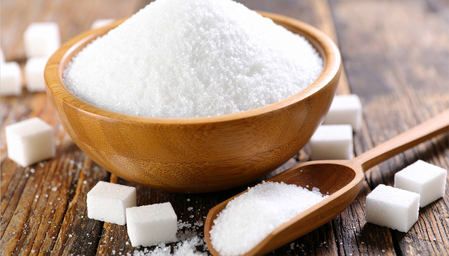Study claims artificial sweeteners can lead to faster cognitive decline

New Delhi, Sep 13 : Long-term use of artificial sweeteners or low- and no-calorie sweeteners, used mainly by people with diabetes, can lead to cognitive decline, claimed a study.
Researchers from the Universidade de São Paulo, Brazil, analysed 12,000 patients who use common artificial sweeteners such as aspartame, saccharin, xylitol, erythritol, sorbitol, tagatose, and acesulfame K.
The results, published in the Neurology journal, found that people who consumed the highest amounts had the greatest declines – 62 per cent — in thinking and memory, as compared to those who consumed less.
The declines amounted to 1.6 years of additional brain ageing.
“We know sugar and sugar substitutes raise the risk of diabetes and malignancies. They are also linked to brain vascular cell dysfunction,” Dr. Manjari Tripathi, head of the neurology department at AIIMS, told IANS. She advised restricting its use.
The study revealed that the people who used the artificial sweeteners moderately had a 35 per cent faster rate of memory and thinking decline, and a 110 per cent faster rate of verbal fluency decline.
For those in the high consumption group, the rate of memory and thinking decline was 62 per cent faster, and their verbal fluency decline was 173 per cent faster.
Dr. Anshu Rohatgi, Vice-Chairperson, Neurology, from a city-based hospital, added that the effect, seen most commonly among diabetics, is a matter of concern as the incidence of diabetes is increasing.
Rohatgi explained that chronic exposure to these sugar alternatives may be making the brain more vulnerable.
“These artificial sweeteners may be causing neuroinflammation, and that may be one of the reasons for the cognitive decline. The other could be that it may be altering the gut microbiome,” Rohatgi told IANS.
A 2024 study led by the Chennai-based Madras Diabetes Research Foundation (MDRF) showed that replacing table sugar (sucrose) with a small quantity of natural and artificial non-nutritive sweeteners (NNSs) such as sucralose in daily beverages like coffee and tea may have no adverse effect on glycemic markers like glucose or HbA1c levels.
The study, published in the journal Diabetes Therapy, revealed that people who used sucralose in pellet, liquid, or powder form also had a slight improvement in body weight (BW), waist circumference (WC), and body mass index (BMI).
In 2023, the World Health Organization (WHO) raised concerns among healthcare stakeholders and the public regarding the use of NNS, even among those with diabetes.
(IANS)






